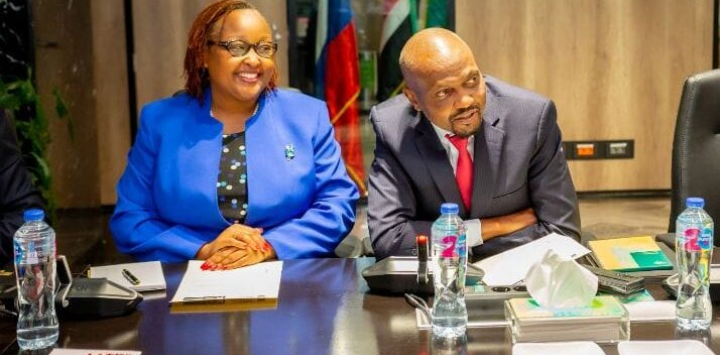Kenyan taxpayers recently lost a staggering KSh 6.6 billion in a cooking oil import scheme under the management of the Kenya National Trading Corporation (KNTC).
This scandal involved massive financial mismanagement, rooted in factors such as exchange rate fluctuations, warehousing costs, and the spoilage of imported oil due to poor handling.
The scandal has implicated several top government officials, including former Trade Cabinet Secretary Moses Kuria and former KNTC Managing Director Pamela Mutua, raising serious questions about the transparency and efficiency of public procurement processes.
The scheme, initiated in 2022, aimed to stabilize the skyrocketing prices of edible oil in Kenya by importing 125,000 metric tons of duty-free oil.
However, what was initially presented as a government effort to lower consumer costs quickly turned into a public scandal, as it became apparent that the oil was procured at inflated prices.
The estimated cost of the project ballooned from an initial KSh 9 billion to KSh 17 billion, placing a huge burden on the taxpayer.
Moses Kuria, as the Cabinet Secretary for Trade at the time, played a central role in championing the project.
He publicly defended the decision to import the oil, claiming that it was necessary to protect Kenyans from exploitation by local oil manufacturers, whom he accused of price-gouging.
Kuria stated that the move would reduce the price of edible oil from KSh 250 to KSh 218 per liter.
However, critics argue that the execution of the scheme was marred by corruption, with companies linked to powerful individuals being single-sourced for procurement【34†source】.
Pamela Mutua, the then-managing director of KNTC, also became embroiled in the controversy.
Allegations of mismanagement under her leadership include failing to properly handle the warehousing of the imported oil, which resulted in poilage.
Mutua was later arrested and questioned by the Ethics and Anti-Corruption Commission (EACC) in connection to her role in the scandal.
Following her arrest, Mutua left her position, and Peter Njoroge was appointed as her interim replacement.
Investigations by the EACC and the Directorate of Criminal Investigations (DCI) are ongoing, with a particular focus on the tendering process used to award contracts for the oil importation.
It has been alleged that some of the companies involved in the procurement were closely linked to government insiders, raising concerns of conflict of interest and corruption.
It was also revealed that the oil had been purchased at a price inflated by $7 per liter, exceeding market rates and contributing to the KSh 6.6 billion loss.
The public backlash has been swift, with many calling for accountability from the officials involved.
President William Ruto had ordered investigations into the scandal, demanding that those responsible for the financial losses be held to account.
Despite these measures, the damage has been done, with large amounts of the imported oil still lying idle in warehouses and taxpayers left footing the bill.
The cooking oil import scandal continues to shed light on the broader issues of corruption and inefficiency in Kenya’s public procurement processes.
With multiple senior government officials implicated, the case serves as a reminder of the importance of transparency and due diligence in the management of public resources.
The public eagerly awaits answers on how billions of shillings were lost, and who will ultimately be held accountable.





















Add Comment